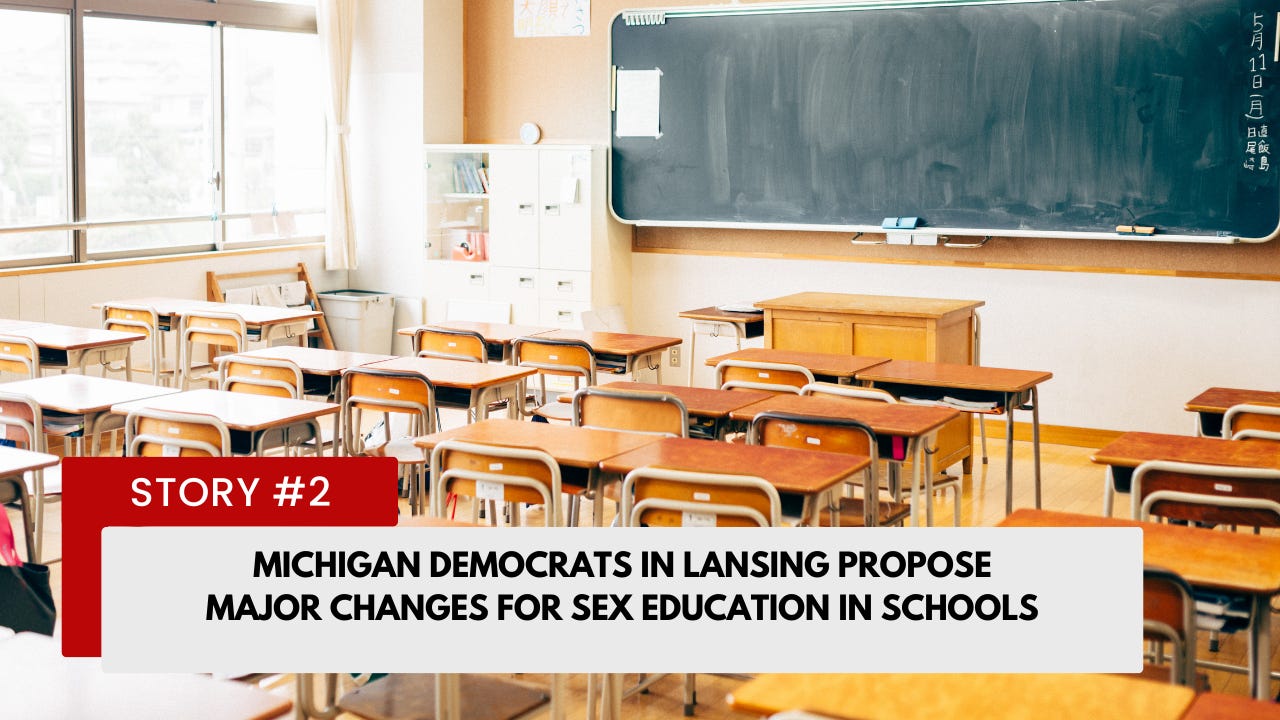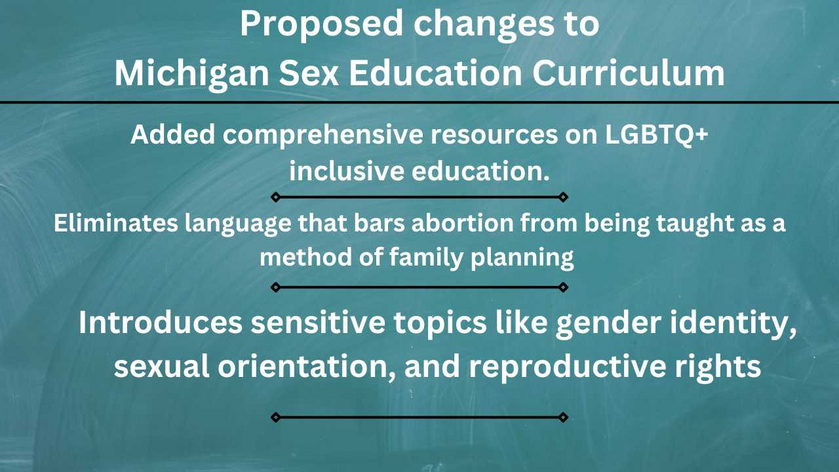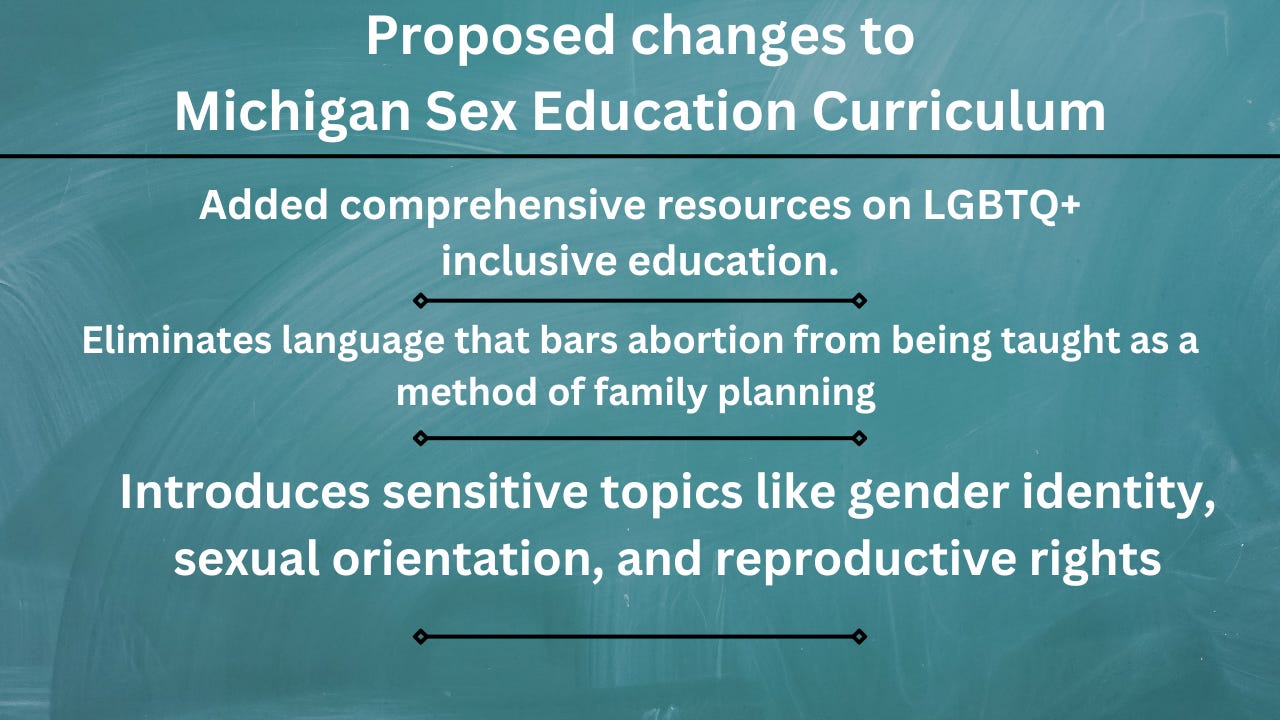I left 25 years in mainstream media to bring you the real stories that matter but often go untold. Support my mission for honest, independent journalism by becoming a paid subscriber. Your support makes a difference.


LANSING, Mich - If Michigan pursues a proposed clean fuel standard, gasoline costs for the typical Michigan household would increase by $350 per year, according to a new study.
Researchers Isaac Orr, Ewan Hayes and Mitch Rolling wrote the Mackinac Center for Public Policy report Low Carbon, High Costs.
In 2023, Sen. Sam Singh, D-East Lansing, introduced Senate Bill 275 to create a statewide standard for fuels. If passed and enacted into law, this would require the carbon intensity of fuel to be reduced by at least 25% by 2035.
“It is past due that we take action to address climate change and invest in the resources needed to make Michigan a leader in environmental resiliency and sustainability,” Singh said in a 2023 news release. “Creating energy efficiency standards and working to reduce carbon emissions and utility costs for residents will make a significant economic impact.”
The group Always On Energy Research calculated that the clean fuel proposal would increase gasoline and diesel prices by about 10%. The proposed standard would increase gasoline prices by $0.34 per gallon and diesel prices by $0.39 per gallon by 2035, according to the model. Click here to read more.

An official from the Central Intelligence Agency (CIA) has been arrested and charged for allegedly leaking classified material about Israel’s attack plans on Iran last month.
The New York Times first reported Wednesday morning that Asif W. Rahman, who works overseas for the CIA, was indicted last week on federal charges and arrested on Tuesday in Cambodia.
He was brought to a federal courthouse in Guam where he was arraigned on two counts of willful retention and transmission of national defense information.
Rahman had a top-secret security clearance and access to Sensitive Compartmented Information (SCI), the Times reported.
The information that was leaked was compiled by the National Geospatial-Intelligence Agency, which analyzes satellite imagery.
The classified documents that were leaked were intended to only be viewed by members of the Five Eyes intelligence alliance, which includes the U.S., U.K., Canada, Australia, and New Zealand. Click here to read more.

BALTIMORE, MD - Maryland’s new education chief, Carey Wright, an old-school champion of rigorous standards, is pushing back against efforts in other states to boost test scores by essentially lowering their expectations of students.
States, including Oklahoma and Wisconsin, are making it easier for students to demonstrate on annual assessments that they are proficient in math and English after a decade of declining test scores nationwide. By redesigning the assessments and lowering the so-called “cut scores” that separate achievement levels such as basic, proficient, and advanced, several states have recently posted dramatic increases in proficiency, a key indicator of school quality.
Wright warns that lowering the bar on proficiency can create the public impression that schools are improving and students are learning more when, in fact, that’s not the case.
“You can make yourself look better to the public by lowering your cut scores,” Wright, the Maryland state superintendent of schools, told RealClearInvestigations in an interview. “But then you are not really measuring proficiency. My position is no, no, no. Parents and teachers need to know if their children are proficient or not.”
As most public schools continue to deal with the related crises of learning loss and chronic absenteeism years after COVID, Wright says now is the worst time to lower expectations of students, which can stifle the impetus to improve. In other moves to accommodate struggling students, districts and states have reduced graduation requirements and inflated grades with policies that ban failing marks. The best evidence comes from studies in Washington and North Carolina showing that grades have held steady at their pre-pandemic levels even though students are learning much less. Click here to read more.

A new peer-reviewed study has just called for a complete SUSPENSION of the COVID-19 injections.
This news comes after the authors of the study found a horrifying increased risk of BRAIN CLOTS following COVID-19 injection.
The results will make your jaw drop:
• The study found brain clots are 112,000% more likely after COVID-19 vaccination than flu vaccination.
• Moreover, when compared to all vaccines combined, COVID shots are 20,700% more likely to cause brain clots.
As such, the study’s authors and other health experts demand:
• “An immediate global moratorium” on the use of COVID-19 vaccines.
• “Absolute contraindication” for women of reproductive age.
• A full investigation into the alarming breach of safety thresholds.
• Accountability from regulators and manufacturers for ignoring these risks.

WASHINGTON D.C. - U.S. inflation continued to push prices up in October, with prices rising at the fastest monthly rate since April.
The consumer price index rose 0.2 percent in October, matching the prior month, the Department of Labor said Wednesday. Before rounding, prices were up 0.244 percent, the first time since April the unrounded figure has risen above two percent.
Officials were alerted to a leak after a pro-Iran Telegram account published the U.S. intelligence documents last month about Israel’s preparations for their attack against Iran, which had been in planning for weeks.
The report said that the leak could be an attempt to disrupt the forthcoming strike.
The documents showed a summary of what U.S. spy satellites observed the Israeli military doing in preparation for the operation, including moving planes and munitions and conducting “a large exercise”. Click here to read more.


















